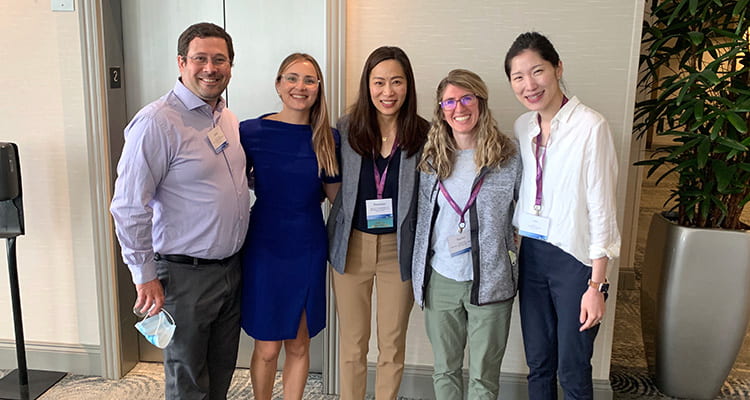Our division provides a nationally recognized, ACGME accredited fellowship program in pediatric rheumatology. The program can accommodate one to two fellows each year and is tailored to the individual fellow’s interest and previous experience. The objective of the program is to prepare fellows for careers as academic pediatric rheumatologists by providing rigorous clinical training as well as a firm foundation in basic or clinical research and/or education methods.

ACGME accreditation

Top-ranked hospital affiliation

Specialized training pathways
Learn more about our program …
- Program overview
Learn more about our comprehensive and rigorous program including clinical rotations, didactics as well as unique teaching opportunities offered through the program. - Education & conferences
Our division offers a diverse array of didactic conferences as part of both the core curriculum as well as part of WashU’s culture of learning and collaboration. - Training pathways
Fellows can select specialized training pathway tailored to their career aspirations. - Current & past fellows
Learn about our current fellows as well as our history of alums.






